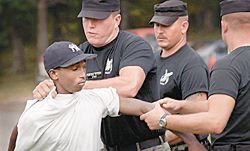Teenage years are full of challenges. For many parents, one of the most alarming issues is when their teen experiments with drugs, alcohol, or engages in risky behavior. These patterns can quickly spiral into addiction, academic decline, and damaged relationships. While counseling and therapy are valuable, some families look for a more structured environment to bring about meaningful change. This is where teen boot camps can play a crucial role in guiding troubled teens toward a healthier and more disciplined lifestyle.
Understanding Teen Drug Abuse and Risky Behavior
Drug abuse among teens often stems from peer pressure, curiosity, stress, or a need to escape emotional pain. Risky behaviors like reckless driving, skipping school, or defiance at home can be warning signs that a teen is struggling deeper than they admit.
Ignoring these problems rarely makes them go away. In fact, without timely intervention, drug use and poor choices can create long-term consequences that impact education, health, and future opportunities.
What Are Teen Boot Camps?
Teen boot camps are structured, short-term programs designed to provide discipline, accountability, and positive routines. Modeled after military-style training, they emphasize strict schedules, physical activities, and team-building exercises.
Unlike traditional punishment, boot camps aim to reset harmful behaviors by teaching respect, self-control, and resilience—key qualities that help teens resist the temptations of drugs and risky lifestyles.
How Boot Camps Address Drug Abuse in Teens
1. Breaking Harmful Routines
One of the biggest challenges in overcoming drug use is breaking daily habits. Boot camps remove teens from environments where they may have easy access to substances and negative influences. The structured schedule helps them focus on healthier activities instead.
2. Teaching Self-Discipline
Drug abuse often results from a lack of boundaries or self-control. Boot camps teach discipline through routines, exercises, and accountability, showing teens that structure can bring stability and strength.
3. Building Awareness and Education
Many boot camps integrate educational sessions about the dangers of substance abuse. Teens learn how drugs affect their physical and mental health, relationships, and long-term goals.
4. Encouraging Physical and Mental Strength
Regular physical training not only promotes health but also releases stress naturally—helping teens find alternatives to drugs as a coping mechanism.
How Boot Camps Reduce Risky Behavior
1. Instilling Responsibility
Teens learn that their actions have consequences, not just for themselves but also for their peers. This awareness fosters responsibility and reduces reckless choices.
2. Promoting Teamwork
Group activities encourage cooperation and empathy. Teens who once felt isolated begin to experience the power of positive social connections, steering them away from negative peer pressure.
3. Encouraging Positive Role Models
Mentors and trainers act as authority figures and role models, guiding teens with discipline and compassion. Seeing adults who lead by example inspires teens to adopt healthier lifestyles.
4. Building Confidence
When teens succeed in challenging tasks, they gain confidence in themselves. This self-belief can reduce the need to seek approval through risky or harmful behavior.
Why Parents Choose Boot Camps for Troubled Teens
For many families, boot camps provide a balance of structure, intervention, and guidance that traditional schools or counseling alone cannot deliver. While not a replacement for long-term therapy in severe cases of addiction, boot camps can serve as a critical turning point for troubled youth.
Programs recommended by Boot Camp For Teens focus on creating safer environments where adolescents can rebuild their lives, free from the negative patterns that once held them back.
Conclusion
Drug abuse and risky behavior in teens are serious concerns that demand swift and effective intervention. Boot camps provide a structured, disciplined environment where teens can break free from harmful habits, build resilience, and develop life skills that prepare them for adulthood. By focusing on discipline, teamwork, and self-awareness, boot camps offer families a valuable resource in helping teens choose healthier, more positive paths.









